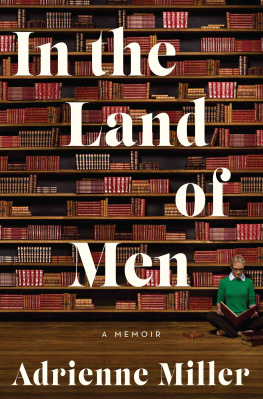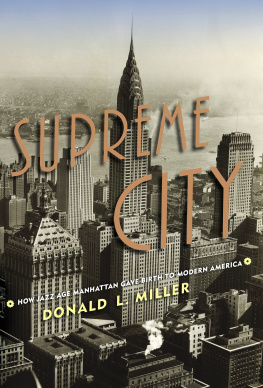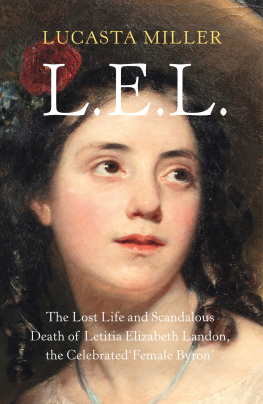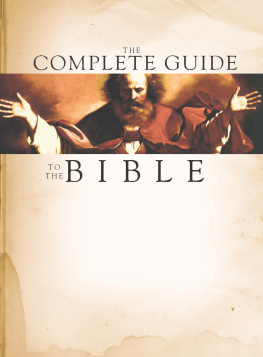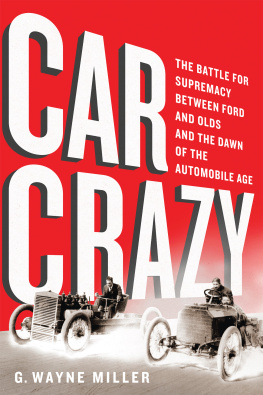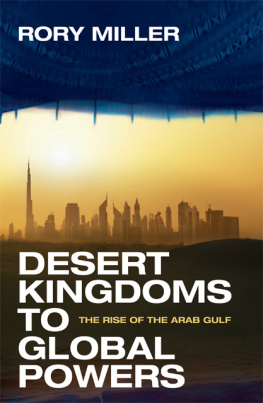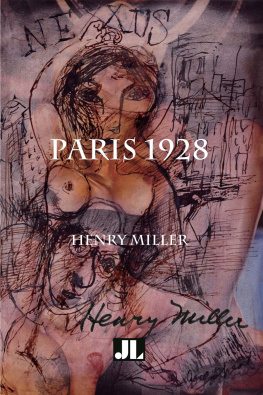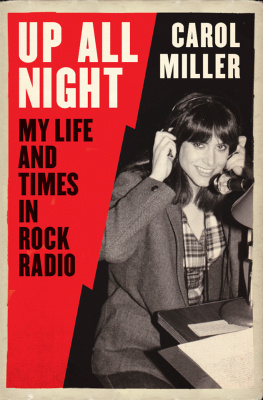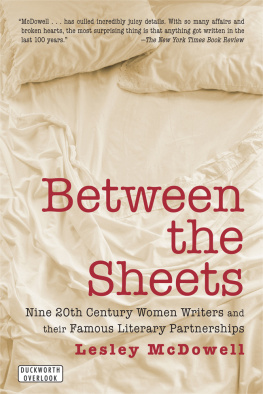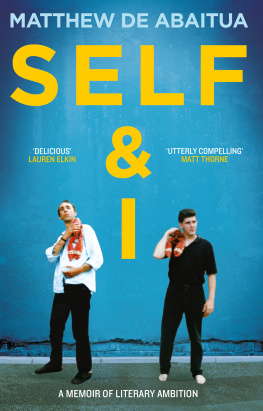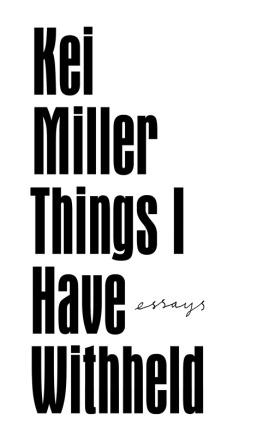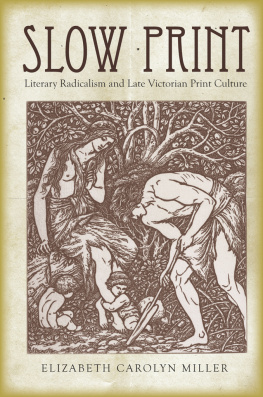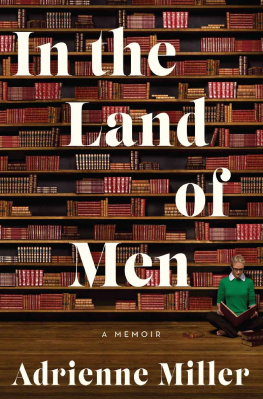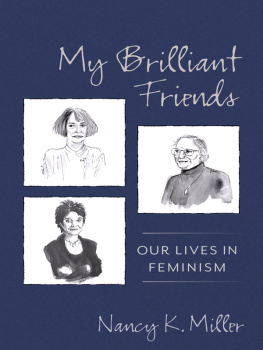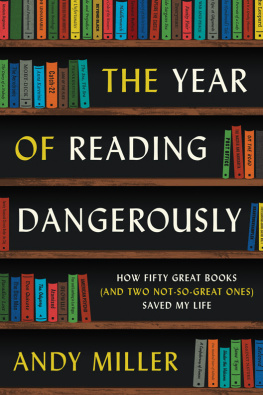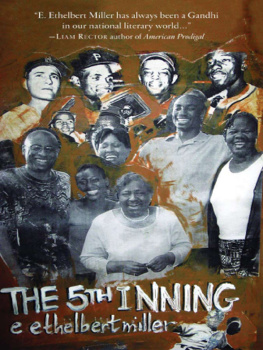Contents
Guide
For Joe
Contents
I n my office at Esquire was a hand-me-down frame, bequeathed from fiction editors of the past. It was made of chrome, complicatedly beat up, and held a piece the magazine had run in the eighties called Whos Who in the Cosmos 1987. When I started my job as the magazines literary and fiction editor, I found this frame lying on the floor underneath my desk.
The Whos Who, published in the August 1987 summer fiction issue, was part of a special section that month called The Literary Universe. It was one of those exercises in classification and pigeonholing that magazines have done since the beginning of time, a power chart of the eras so-called literary establishment. Cover stars from this issue: John Updike and William Styron. The Whos Who map, which looked kind of like a kids outer space place mat, was a three-page gatefold with hundreds of floating, context-free names of various writers, editors, agents, critics, teachers, and publishers grouped in categories such as Rising Stars, Falling Stars, Out of Orbit, The Parallel Universe, and Lost in Space. You get the drift. Or maybe you dont. Probably you shouldnt. With all due respect to the legendary Esquire fiction editor L. Rust Hills, who compiled the thing as a sort of reprise to a literary power chart the magazine published in 1963, I could never make heads or tails of it. I can guarantee that few Esquire readers of the eighties could, either.
One thing was clear: the place to be on the chart was The Red-Hot Center. As Rust had written in his introduction, the persons located there were generating enormous amounts of heat. The fiction writers placed within that particular red-hot sun (they are all dead now, the sun a graveyard) were Saul Bellow, John Updike, Raymond Carver, Elmore Leonard, and Norman Mailer. Toni Morrison, probably the most important living American novelist, was relegated to a moon in deep space, mentioned only in a roundup of her agencys clients. The red-hot center did contain the names of three women, but none of them were novelists and only one was a writera book critic; the other two were a literary agent and a socialite. And they are all still very much alive, these three, but thats no real surprise. The women always do seem to persevere in the end.
I never knew what to do with the frame. I loathed the literary star system and everything this chart represented, and there was no way I was ever going to hang it on my wall. But I could never quite bring myself to toss it, either. I tried to give it away, but I never found any takers, not even among the more seasoned Esquire veterans (meaning: Rust Hills, who never seemed to want to take credit for his own creation). So, during the years I had that office, the framed Whos Who existed in a kind of purgatory, lying faceup on the bottom shelf of a bookcase behind my desk, with books and submissions and whatnot stacked on top of it.
When I started the job in 1997, no single media outlet could presume the Literary Universewide authority Esquire had attempted to claim for itself a decade before. Was there anything vaguely resembling a red-hot center or even a general literary universe anymore? And if there was, was I now somehow, at age twenty-five, as Esquires literary editor, an improbable gatekeeper to it? (Or warden? Den mother, maybe?)
At the bottom of the page was a large catchall category called On the Horizon, and included in it was a twenty-five-year-old novelist named David Foster Wallace, who had just published his first book. Eleven years after his Literary Universe cameo, David was in my office, sitting in the squat red velvet swivel chair across from my desk, with the frame in his lap.
God, I hate this thing, he said.
Davids hair was cut short underneath his blue bandanna, his complexion was turbulent, and he had, as my grandmother liked to say about any white person whod been in the sun, good color. I considered him for a moment.
Youre looking very tan right now, David.
The brown-gold Wallace eyes gleamed deviously. I would edit four short stories of Davids for Esquire. He was the fiction writer with whom Id work the most frequently at the magazine.
Well, I am half quadroon, he said.
David was using my purple-and-white plastic TRUMP TAJ MAHAL cupwhich Id acquired two years before on an ill-advised trip to Atlantic City and had brought to the office for reasons unknownas his tobacco cuspidor. Patiently, he waited for me to figure out what a half quadroon was.
Octoroon, I said finally.
Touch, he replied.
I had been amazed, and not in an entirely good way, how David was able to recollect so many details about the Literary Universe chartwho was situated where; the names, for example, of the writers placed in the Falling Stars category, and the distinction between the Rising Stars grouping and Davids own On the Horizon. (The Rising Stars category had Julian Barnes, Richard Ford, and Louise Erdrich in it and was the far better place to be.) The truth was that I hadnt known much at all about the notorious history of the Literary Universe, which had been seemingly scrubbed from the Esquire institutional memory, or anything about what a toxic plum cake it had been in literary circles, before David told me about it. According to David, writers and editors had spent the summer of 1987 nattering away about the Literary Universeeveryone joined in the belief that the thing was shallow, cynical, and ridiculous... yet everyone knew exactly where, or if, he was placed on it. The most Id ever heard, or would ever hear, from anyone about the Literary Universe was from David.
How old were you when it came out? he asked.
I did a quick calculation. Fifteen. Ninth grade.
Jesus, he said.
Hed had a residency at a writers colony in upstate New York when the issue was published and began describing how he had taken his august inclusion in the chart as an excuse to behave as badly as possible at the colony, and everywhere else.
But do you know whats most depressing of all? he asked. How much I actually cared about this thing. All I could think was When do I get to the red-hot center?
The dark little laugh.
I suppose if there was a red-hot center in the late nineties/early aughts, that center might as well have been David. There was a sense that David, more than any other living writer, was read competitively, his sui generisness unbearable to all. It was dangerous, having David around in the world then. Before he could be turned into something else entirelyfirst, a beloved tragic personage; then, a cultural hero; later, a cautionary tale; finally, a monsterhe would need to be safely, tactfully dead. Blood is required of our heroesand monsters.
Why would you even care what some magazine says? I asked.
David looked over at me, eyes bright behind his glasses.
The good thing about you, he said, is that you would never do anything like this.
Obviously not, I sensibly replied.
He started fanning his T-shirt. Is it exceptionally hot in here or is it just me? he asked.
The visit to my office had been Davids idea (I cant detach from you just yet), though he was being very weird about it: he didnt want anyone to see him, so we kept the door closed.
I asked him if he wanted me to open the door to let in some air.
Eh, David said. Id be too self-conscious to talk to you if the door were open.
He discreetly expectorated into my TRUMP TAJ MAHAL cup and went into a quick story about a photo shoot for Us magazine (seriously, Us magazine?) hed agreed to do with several other young writers in the eighties. By his account, the shoot had not gone well. Indeed, it had gone the opposite of well.
Next page
